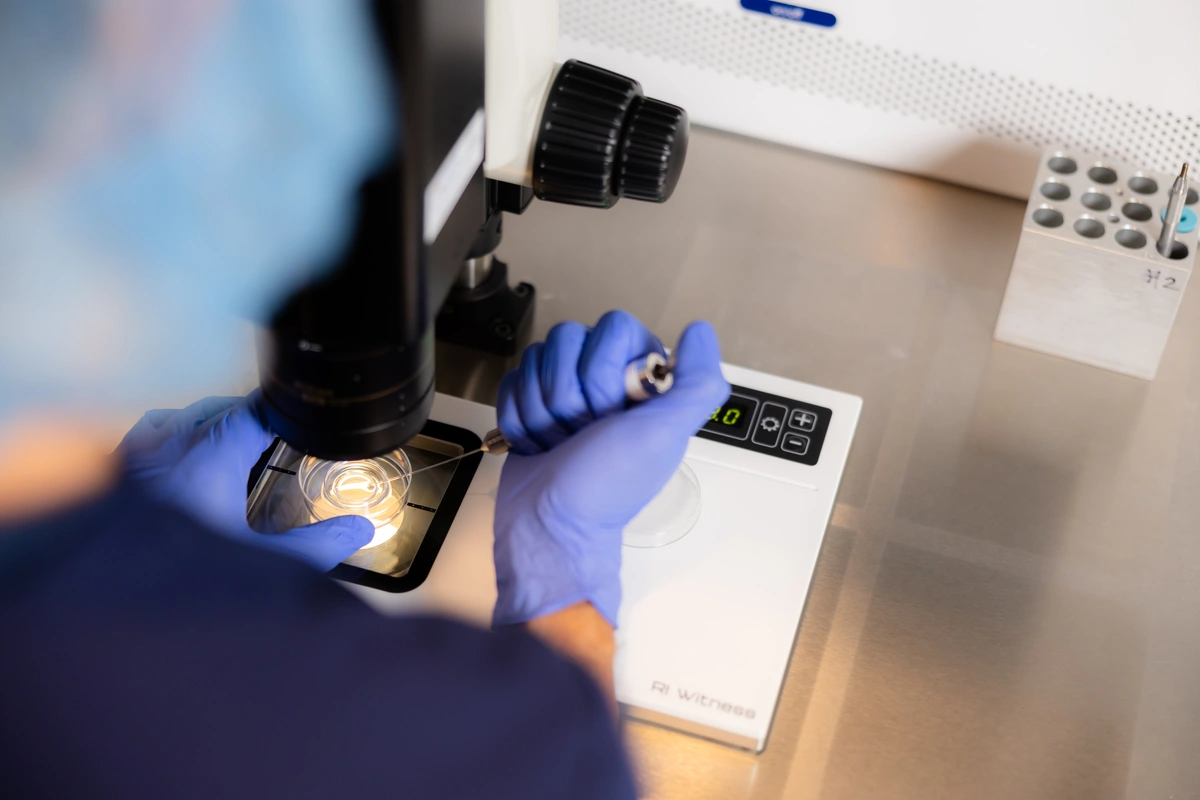
Exploring Advanced Fertility Technologies: PGT, ICSI, and More
Today’s fertility landscape offers more hope than ever before, thanks to significant advancements in reproductive medicine. For individuals and couples facing infertility—or simply seeking the most informed path to parenthood—technologies like PGT (Preimplantation Genetic Testing), ICSI (Intracytoplasmic Sperm Injection), and other innovations are changing the game.
At IVFMD, we combine compassionate care with cutting-edge science to improve outcomes and give patients every advantage on their fertility journey. In this blog, we explore the most powerful advanced fertility technologies available today and how they can support your family-building goals.
Why Advanced Fertility Technology Matters
While traditional in vitro fertilization (IVF) has helped millions of people conceive, advanced techniques allow for even greater precision, especially in cases involving:
-
Male factor infertility
-
Recurrent pregnancy loss
-
Genetic concerns
-
Advanced maternal age
-
Unexplained infertility
These technologies not only improve fertilization and implantation rates but also allow for greater customization of treatment based on your unique biology and goals.
1. PGT (Preimplantation Genetic Testing)
Preimplantation Genetic Testing (PGT) is an optional but increasingly common step during IVF. After embryos are created in the lab, a few cells are gently removed from each embryo and analyzed for genetic abnormalities before transfer. The cells are removed from the part of the embryo that eventually becomes the placenta.
There are three main types:
-
PGT-A (Aneuploidy): Screens embryos for missing or extra chromosomes (e.g., Down syndrome, Turner syndrome)
-
PGT-M (Monogenic): Detects specific inherited conditions like cystic fibrosis or Tay-Sachs
-
PGT-SR (Structural Rearrangements): Used for patients with balanced translocations or chromosomal inversions
Who can benefit from PGT?
-
Women over 35
-
Couples with a history of miscarriage
-
Individuals with known genetic disorders
-
Those who want to reduce the risk of failed implantation
PGT helps increase the chances of a healthy, successful pregnancy by identifying the most chromosomally normal embryos for transfer.
2. ICSI (Intracytoplasmic Sperm Injection)
ICSI is a micromanipulation technique used during IVF where a single sperm is directly injected into an egg. It’s especially helpful when fertilization is unlikely to occur with traditional insemination.
When is ICSI recommended?
-
Severe male factor infertility (low sperm count, poor motility, abnormal morphology)
-
Previous IVF cycles with poor fertilization
-
Use of frozen or surgically retrieved sperm
-
Egg freezing or donor egg cycles
ICSI has become a standard part of many IVF protocols and has helped many couples overcome male infertility barriers.
3. Embryo Freezing (Cryopreservation)
Cryopreservation allows patients to freeze and store embryos for future use. This is particularly valuable for:
-
Preserving surplus embryos after IVF
-
Delaying pregnancy for medical or personal reasons
-
Preparing for future sibling pregnancies
-
Reducing the number of stimulated IVF cycles
Vitrification, the modern rapid-freezing technique, has dramatically improved embryo survival rates and outcomes in frozen embryo transfers (FET).
4. Egg Freezing (Oocyte Cryopreservation)
Once considered experimental, egg freezing is now a mainstream option for women who want to preserve fertility due to age, cancer treatment, or life planning.
Ideal candidates include:
-
Women under 38 who want to delay childbearing
-
Individuals facing medical treatments that may impact fertility
-
Transgender individuals planning hormone therapy or surgery
At IVFMD, we offer state-of-the-art egg freezing with personalized monitoring to optimize results.
5. Time-Lapse Embryo Imaging (EmbryoScope™)
The advanced technology, Embryoscope+, involves placing embryos in an incubator equipped with a time-lapse camera, which captures images every few minutes during development.
Benefits include:
-
Continuous, non-invasive embryo monitoring
-
Better embryo selection based on growth patterns
-
Improved IVF success rates
By observing how embryos develop in real-time, our embryologists can make more informed decisions about which embryos are most likely to lead to a successful pregnancy.
6. ERA Testing (Endometrial Receptivity Analysis)
Sometimes, IVF fails even with healthy embryos. The ERA test evaluates the endometrial lining to determine the best time for embryo transfer—your "personalized implantation window."
This test is especially useful for:
-
Patients with repeated failed IVF cycles
-
Unexplained implantation failure
Partnering With the Right Clinic Matters
Not all clinics offer the same level of technology, laboratory expertise, or personalized care. At IVFMD, we prioritize the latest fertility innovations, paired with deeply individualized treatment for every patient.
Whether you’re considering IVF for the first time or have had challenges in the past, we’ll guide you through the available options and help create a plan that gives you the best chance at success.
Final Thoughts: Empower Your Journey with Innovation
Advanced fertility technologies like PGT, ICSI, egg freezing, and embryo monitoring offer new hope to those navigating infertility. These tools provide deeper insights, more control, and higher success rates—especially when combined with expert medical care and personalized support.
Ready to explore your options? Schedule a consultation with the specialists at IVFMD and learn how the latest fertility innovations can support your journey to parenthood.
